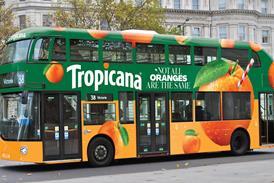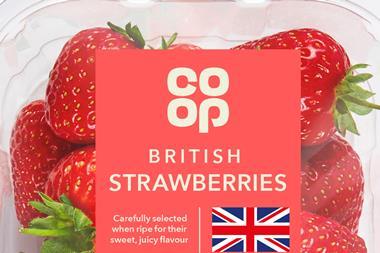A merger between the Co-operative Group and United Co-op to create the world's largest consumer co-operative looks almost certain to go ahead after both boards gave the deal the green light.
Both will urge members to approve the decision at meetings set to take place in April and May. This would mean the new society could emerge in late July.
United Co-op's chief executive Peter Marks, who has made no secret of the fact he favours creation of a single society, said the business case for the merger was "overwhelming".
He said: "The two societies' activities are geographically complementary and together account for more than 80% of co-operative retail trade in the UK. The merger would better enable the new organisation to effectively manage the Co-operative brand - one of the most trusted in the UK - across all its business activities."
Bob Burlton, chairman of the Co-operative Group, and Bill Hoult, president of United Co-op, said in a joint statement that the merger would be the most far-reaching in the history of the movement. The resultant society would have sales of more than £9bn and would help ensure the group's continuing growth and profitability.
The new group will have 87,500 staff and 4,500 stores, including 2,300 food stores, predominantly neighbourhood c-stores. Currently, the Co-operative Group operates 1,700 food stores and United has 621.
Its enlarged trading group will be headed by Peter Marks, while David Anderson will continue as chief executive of Co-operative Financial Services.
The merger will create the UK's fifth-largest grocery retailer by market share with 4.5%, ahead of Somerfield and Waitrose with a 4% and 3.6% share respectively, according to AC Nielsen.
United Co-op recently merged with Leeds Co-operative Society. This deal follows a string of other Co-op society mergers, including Ilkeston
Co-operative merging with Midlands Co-operative, and Sheffield Co-operative Society's link-up with United Co-op.
Both will urge members to approve the decision at meetings set to take place in April and May. This would mean the new society could emerge in late July.
United Co-op's chief executive Peter Marks, who has made no secret of the fact he favours creation of a single society, said the business case for the merger was "overwhelming".
He said: "The two societies' activities are geographically complementary and together account for more than 80% of co-operative retail trade in the UK. The merger would better enable the new organisation to effectively manage the Co-operative brand - one of the most trusted in the UK - across all its business activities."
Bob Burlton, chairman of the Co-operative Group, and Bill Hoult, president of United Co-op, said in a joint statement that the merger would be the most far-reaching in the history of the movement. The resultant society would have sales of more than £9bn and would help ensure the group's continuing growth and profitability.
The new group will have 87,500 staff and 4,500 stores, including 2,300 food stores, predominantly neighbourhood c-stores. Currently, the Co-operative Group operates 1,700 food stores and United has 621.
Its enlarged trading group will be headed by Peter Marks, while David Anderson will continue as chief executive of Co-operative Financial Services.
The merger will create the UK's fifth-largest grocery retailer by market share with 4.5%, ahead of Somerfield and Waitrose with a 4% and 3.6% share respectively, according to AC Nielsen.
United Co-op recently merged with Leeds Co-operative Society. This deal follows a string of other Co-op society mergers, including Ilkeston
Co-operative merging with Midlands Co-operative, and Sheffield Co-operative Society's link-up with United Co-op.

















No comments yet